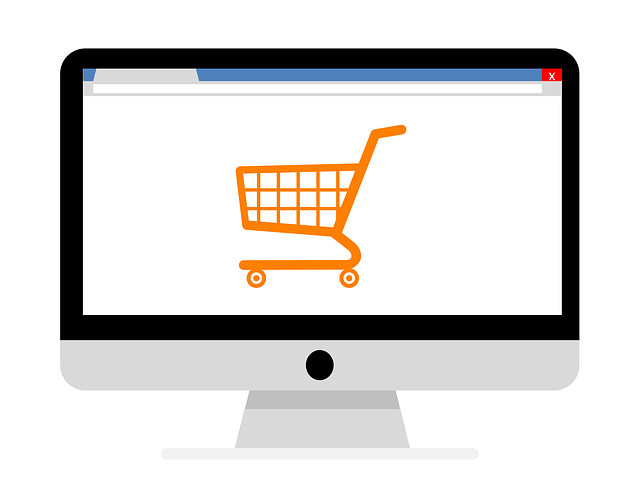Starting a website is no easy task, creating a successful online business is even harder, however as the technology advances further, more and more entrepreneurial minds choose to open an online shop rather than a physical one. This is due to several reasons, one of them being money. Setting up an online shop doesn’t require loans to be taken out, business permissions, real estate, etc. as would a brick and mortar store. This guide is here to help you set up your first online business with minimum expenses and headache.
What’s your product?
Before getting started and thinking about web hosting, domain name, and e-commerce platforms, you need to define the product you want to sell clearly. Whether it’s going to be something you make yourself, like organic cosmetics, clothes, handmade furniture or something you’ve found is sold so cheaply that you think you can make a profit out of it by selling it on your shop, the product is the primary source of profits. Therefore, it’s worth answering these questions before getting started: how does your product fit in today’s market? What’s your closest competition? What’s your marketing strategy and plans for the product development?
Once you have the answers to these questions, it’ll be easier for you to get the best compatible tools for your online shop.
What’s your budget?
Every new business requires an investment. Before beginning, it is useful to set out a budget you’re willing to spend in order to open your e-shop. On top of all the costs, your product will require for production, development, and distribution, you also need to consider all the web hosting, domain registration, and e-commerce setup costs. Once you know how much money you’re willing to spend all together to get this product online, you can then distribute your expenditure accordingly. Maybe you will be able to invest more into quality hosting or top-notch e-commerce platform or maybe, after all, you will have to go with the cheapest options as your budget will be mainly dedicated to the production of your product.
What’s your brand name?
One of the most important parts of your online business is the name. The branding of your website, the branding of your products and the branding of your shop are what goes into a successful brand. Is it going to be a single product that you’ll be selling? If so, then maybe that’s how your website and your brand should be also called or is it going to be a wide array of things and services you’ll be selling? Then come up with a name that’s easy to remember, is catchy and relevant to your goods. At the same time, check if the name of your brand is available as a domain name for your website. If it’s taken, you might want to come up with something different as you might not want to name your website differently to the brand.
Where will you host your shop?
Once you’ve decided on the points mentioned above and have all the answers to the questions asked, it’s worth to start thinking about where and how will you host your e-shop. Will you have somebody else develop a website for you or will you do it yourself? If you’re not new to the web world, it will be cheaper to do it yourself. On the other hand, if you think you will need all your time spent on the product, it’s probably better to hand off this task to a web developer.
It’s easier than ever to create an online shop these days as there are plenty of platforms designed for e-commerce. Shopify is dedicated to hosting just online shops. It has web hosting integrated together with all e-commerce features. You can easily create a website using plenty of professionally designed templates, SEO tools, and even a blog. On top of that, you always have available, 24/7 dedicated customer support to help you at every step of the way.
If you’re quite tech savvy and want to customize your own shop, or already have a website, but it lacks e-shop functionality, the best option here would probably be WordPress. While it’s mostly designed as an open-source content management system, WooCommerce plugin developed especially for WordPress will turn any website into an e-shop. Just like Shopify, WordPress also contains all the necessary features needed for a smooth online shop running, SEO tools, web hosting, and even a domain name is available to be bought.
For those of you who have no time to dedicate to a website maintenance, there’s a third option if you hire a web developer. A web developer can set up the kind of a shop you’ve always wanted by simply ordering web hosting from a reliable provider, like Hostinger, Siteground for example. Together with web hosting, it also is a certified domain registrar, which is handy if you want to keep your domain and web hosting with the same provider, as opposed to two separate platforms. The shop on a dedicated web hosting platform has no limits and can be made into anything. On top of a vast selection of features, different CMS platforms, and speed, shared hosting also will provide more security measures for your payment and sensitive client information. This option, however, might turn out to be more pricey than those mentioned above.
Start earning money
Once your online shop is set up and your business is launched, you will start earning profits. Make sure you have tracking systems, like Google Analytics in place to see where your traffic is coming from and how it is behaving inside your shop. If you notice that your shop is not bringing the profits you expected, it’s always good to do a little promotion. Make sure you have social share buttons and a blog. Social share buttons will allow your customers to share your products on social media platforms, and by having a blog on your website, you will be able to effortlessly refresh your content and promote it on social media or other channels as well. It also might be a good idea to do a little advertising. Google Adwords or social media advertising are just the right tools for that.
That’s it.
Congratulations, if you have followed these few steps, you should have one hell of an online shop, and your business should be buzzing. It is effortless to set up an online shop these days and also to be successful at running it with a great product and a bit of marketing.




